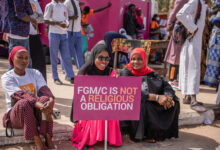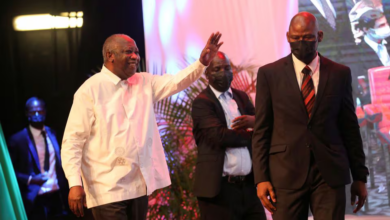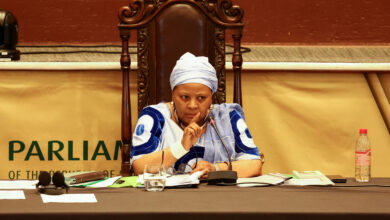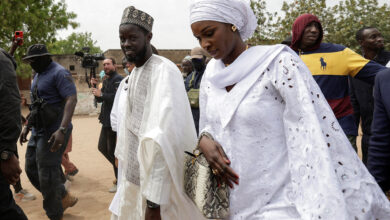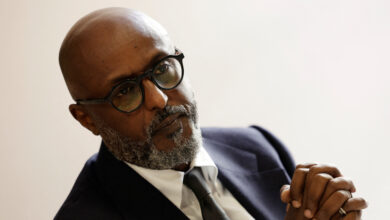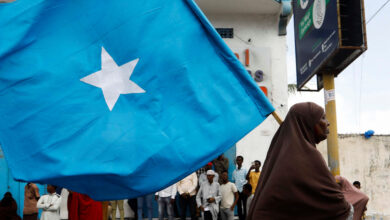Tribunal for Slavery? Caribbean and Africa come together for restitution
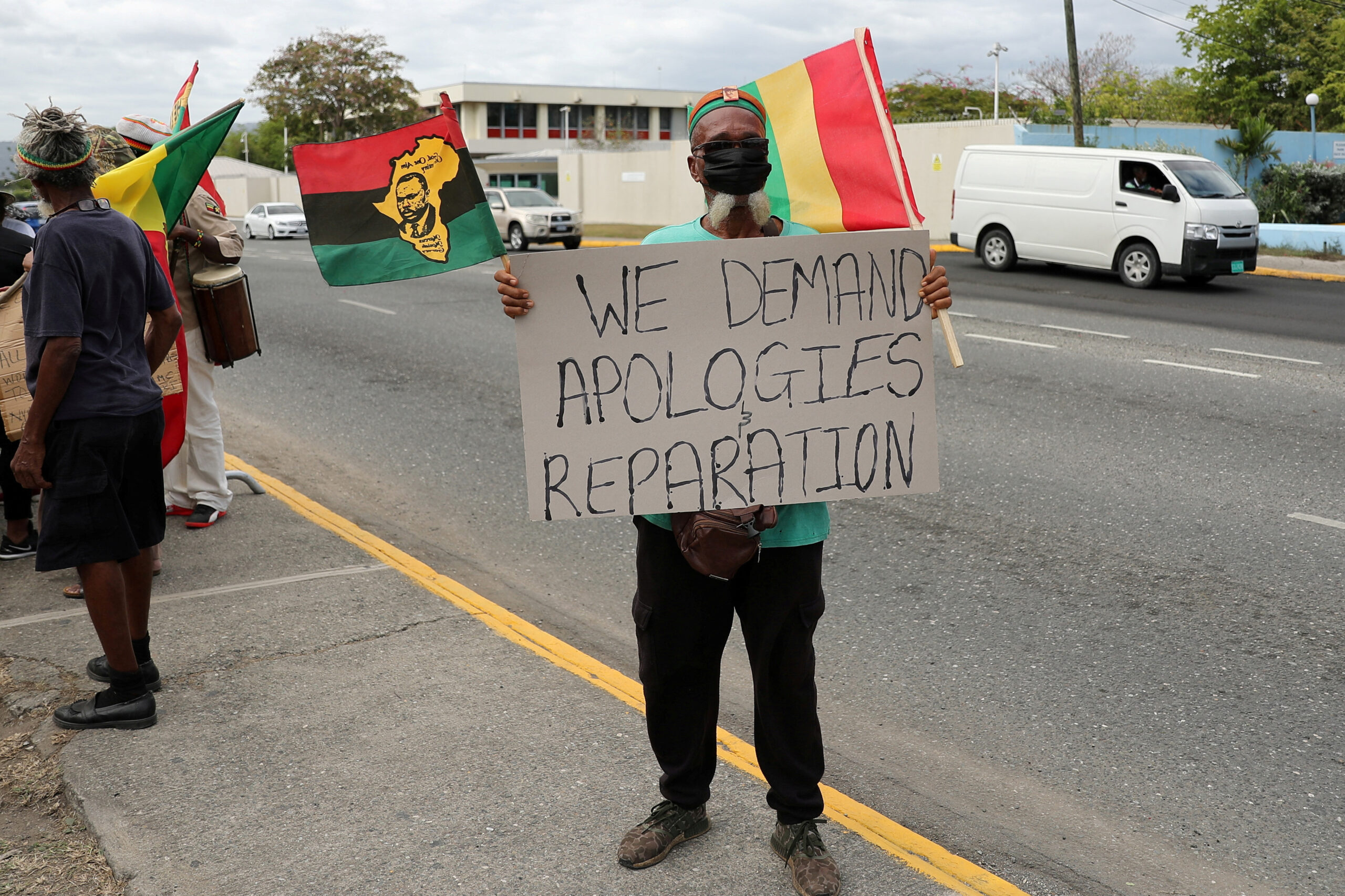
The United States is supporting a U.N. panel at the center of the attempt to create an international tribunal on atrocities related to the transatlantic traffic of enslaved people, and support for the idea is growing among African and Caribbean countries.
Last year, there was a proposal for a tribunal that was modeled after earlier ad hoc courts, such the Nuremberg trials of Nazi war criminals following World War Two. According to Reuters reporting based on interviews with twelve people, it has now acquired steam within a larger movement for slavery reparations.
The idea of a special tribunal has been further investigated at African and Caribbean regional bodies, according to Eric Phillips, a vice-chair of the slavery reparations commission for the Caribbean Community, or CARICOM, which consists of 15 member states. The idea was formally recommended in June by the U.N. Permanent Forum on People of African Descent.
Although the U.N. Forum suggested in a preliminary report that any tribunal should include reparations for slavery, apartheid, genocide, and colonialism, the tribunal’s exact scope has not yet been decided.
Advocates are trying to increase support for the proposal among U.N. members, particularly within CARICOM and the African Union (AU), which unites 55 countries on the continent, according to Phillips.
READ ALSO: US athletes Morgan and Horan are upset over their teammates’ social media remarks
Supporters argue that a special U.N. tribunal would contribute to the establishment of legal standards for intricate international and historical restitution claims. Among other reasons, reparations opponents contend that modern states and organizations shouldn’t be held accountable for slavery in the past.
Even those who support it acknowledge that setting up an international court to try cases involving slavery will not be simple.
The Africa Judges and Jurists Forum (AJJF), which advises the AU on reparations matters, has “huge obstacles,” according to Martin Okumu-Masiga, its secretary-general.
Getting the support of countries that participated in the trafficking of slaves as well as the legal difficulties of identifying guilty parties and figuring out remedies are obstacles.
“These things happened many years ago and historical records and evidence can be challenging to access and even verify,” Okumo-Masiga stated.
There is still no living person directly implicated in transatlantic slavery, unlike the Nuremberg trials.
When asked about the concept of a tribunal, a representative for the British Foreign Office admitted that the nation was involved in the transatlantic slave trade, but they did not have any plans to make up for that. Rather of focusing on “today’s challenges,” the spokesperson added that historical lessons should be applied to right past wrongs.
But proponents of opening a new reparations tab argue that Western nations and organizations that profit from the wealth created by slavery ought to answer for their actions, especially in light of the persistent legacy of racial prejudice.
A tribunal would contribute in creating a “official record of history,” according to Brian Kagoro, a lawyer from Zimbabwe who has spent more than 20 years promoting reparations.
According to studies conducted by the United Nations, there is a connection between the long-lasting effects of transatlantic slavery from the United States to Europe and the African continent and racism, poverty, and economic underdevelopment.
“These legacies are alive and well,” declared Clive Lewis, a British Labour MP sprung from slaves in Grenada, a Caribbean republic.
Black individuals “live in poorer and more polluted areas, they have worse diets, they have worse educational outcomes… because structural racism is embedded deep.”
NIGERIA SUPREME
Leaders from Africa and the Caribbean gathered in Ghana in November to discuss reparations, during which the idea for a tribunal was raised.
The conference in Ghana concluded with a promise to establish a new tab to investigate legal avenues, including “litigation options.”
Foreign Minister Yusuf Tuggar told Reuters in February that Nigeria, the most populous country in Africa, is in favor of the campaign for a tribunal, saying the government will back the proposal “until it becomes a reality.”
Premier Dickon Mitchell of Grenada, where hundreds of thousands were enslaved, is “in full support,” a spokesperson claimed, characterizing the tribunal as a CARICOM-led endeavor.
According to Phillips, the process of establishing a tribunal would need to go through the UN system and involve talks with nations that were complicit in the trade of enslaved people to the Caribbean and other areas, such as Portugal, Britain, France, Spain, the Netherlands, and Denmark.
Reuters was unable to determine the number of African and Caribbean nations that were expected to back the proposal.
Justin Hansford, a law professor at Howard University who was appointed to the U.N. forum by the U.S. State Department, is one of the tribunal’s most outspoken supporters.
He stated that since at least 50 countries are expected to attend, the issue will be debated during the forum’s third session, which begins on April 16.
In order to bring up the idea with more support during the U.N. General Assembly in September, Hansford then intends to fly to Africa to lobby for additional support, he told Reuters.
Regarding the tribunal, he stated, “A lot of my work now is to try and help make it a reality,” adding that it might take three to five years to get it off the ground. According to Phillips, the objective was to get sufficient backing by 2025.
Through its financing of the U.N. conference, the United States “will make a decision on the tribunal when it has been developed and established,” according to a representative for the U.S. State Department. The official went on, “However, the United States strongly supports” the forum’s efforts.
“The complexity of the issue, legal challenges, and differing perspectives among Caribbean nations present significant challenges,” the spokesperson stated in reference to reparations.
The leadership of the United Nations has now publicly endorsed reparations, which have been utilized in previous situations to make up for significant moral and financial obligations, such as those owed to families of Holocaust survivors and Japanese Americans who were detained by the US during World War Two.
In his most forthright remarks to the public on the subject to date, U.N. General Secretary Antonio Guterres stated on March 25 that “we call for reparatory justice frameworks, to help overcome generations of exclusion and discrimination.” A request for information regarding a potential tribunal was not answered by Guterres’ office.
In response to a query concerning the tribunal, Liz Throssell, a spokesman for the U.N. Human Rights office, stated that “no country with a legacy of enslavement, the trade in enslaved Africans, or colonialism has fully reckoned with the past, or comprehensively accounted for the impacts on the lives of people of African descent today.”
Last year, the Netherlands expressed regret for its part in the transatlantic slave trade and unveiled a $200 million fund to confront its history. The foreign ministry’s representative said the ministry was unaware of the talks about a tribunal and was unable to comment.
No comments were offered by the French authorities. Requests for comments from the governments of Portugal, Spain, and Denmark were not answered.
Defendants and Claimants
A tribunal is being pushed partly because of the idea that allegations should be protected by law, according to Okumu-Masiga of the Africa Judges and Jurists Forum.
The European Union is among the organizations that have determined that transatlantic slavery constituted a crime against humanity.
The United Nations formalized the framework of special tribunals, which are ad hoc criminal courts tasked with looking into significant international crimes like crimes against humanity, following the Nuremberg trials of the 1940s.
Since then, the U.N. has established two: one to try those accountable for the Rwandan genocide in 1994 and another to try war criminals for crimes against humanity committed in the former Yugoslavia throughout the 1990s.
The International Criminal Court, another international U.N. tribunal, was established by a General Assembly resolution, suggesting that this could be a path toward a tribunal for restitution for slavery, according to Hansford.
The courts for Rwanda and Yugoslavia were established by the U.N. Security Council.
According to Okumu-Masiga, potential claimants may be impacted nations, enslaved people’s descendants, and indigenous communities, whereas defendants could be governments or institutions with historical ties to slavery or even enslavers’ descendants.
There are other options for legal action besides international tribunals.
According to a person with knowledge of the situation at CARICOM, prime ministers and presidents of Caribbean nations met in February of this year and suggested collaborating with the AU to ask the International Court of Justice (ICJ) for an advisory legal opinion on reparations through the U.N. General Assembly.
The ICJ’s recommendation will be the basis for decisions over which course of action to take, according to Makmid Kamara, the founder of Reforms Initiatives, a civil society organization based in Accra that collaborates with the AU on reparatory justice.
RECOVERABLE MOVEMENT
At least 12.5 million Africans were sold into slavery between the fifteenth and late nineteenth centuries, when the majority of the ships carrying the slave trade were European, although there were also Brazilian and American flags.
Britain was the most active European nation after Portugal, which enslaved around 6 million people, having transported an estimated 3.2 million individuals prior to advocating for the abolition of slavery.
Those who made it through the grueling journey were forced to work horrific hours on plantations in the Americas, primarily in Brazil, the Caribbean, and the United States, while others made money off of their labor.
The original proponents of reparations were the enslaved individuals.
Verene A. Sheperd, head of the University of West Indies’ Center for Reparations Research, said, “They fought wars of resistance, they ran away, and they raised their voices in songs of protest.”
Later, the movement attracted support from a wide range of sources, including Rastafarians in the Caribbean and American civil rights leader Martin Luther King Jr. Several of the biggest organizations in the world have raised their voices in the last year.
According to Kamara, Ghana spearheaded the drive to rally Africans behind the formal pursuit of reparations, with Senegal, Nigeria, and South Africa joining the fray.
According to Hansford and Phillips, the majority of discourse has centered on transatlantic trafficking, with little attention paid to the more traditional trans-Saharan trade that brought several million Africans into the Islamic world as slaves.
There is disagreement over what actual reparations might entail. Some have advocated for specific payments to descendants of enslaved persons, especially in the United States. In a 2014 plan, CARICOM requested debt cancellation and assistance from European countries to address economic and public health concerns.
The effort has gained momentum as a result of AU’s decision to join CARICOM, according to Jasmine Mickens, a reparations specialist and social movement strategist based in the United States.
According to Okumu-Masiga, the AU is now creating Africa’s own white paper on potential reparations.
Attendee Mickens stated, “This message has the support of a global community.” “That’s something this movement has never seen before.”
Additional reporting was done by Felix Onuah in Abuja, Maxwell Akalaare Adombila in Accra, John Irish in Paris, and Lissandra Paraguassu in Brasilia. Catarina Demony reported from Lisbon. Frank did the editing. Kat Stafford and Jack Daniel


